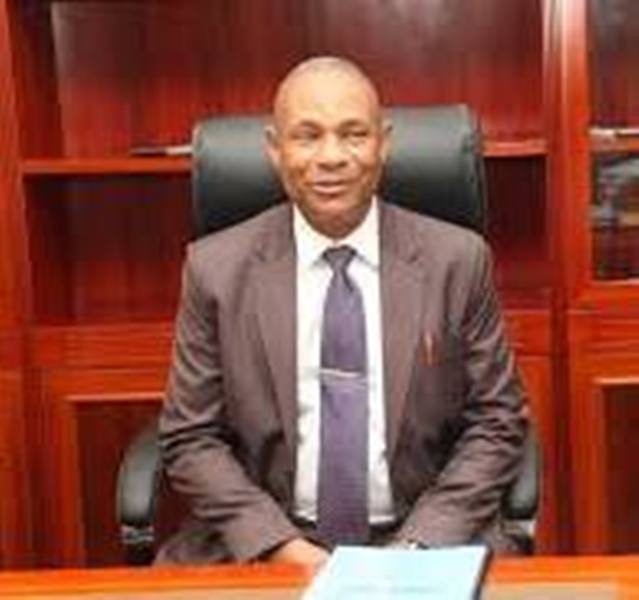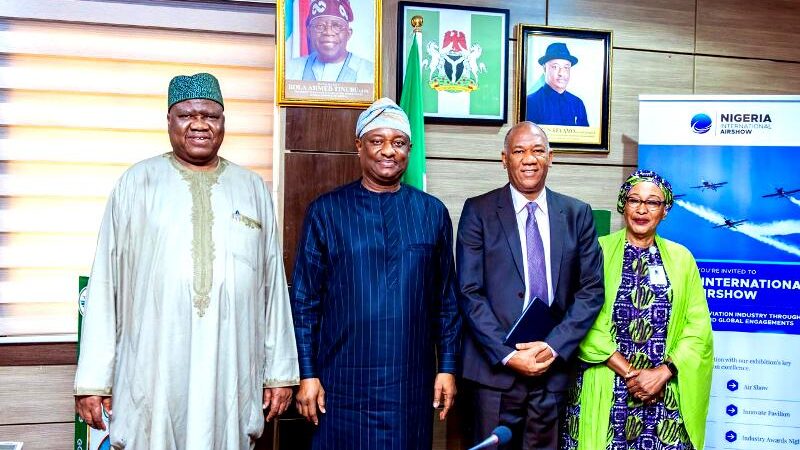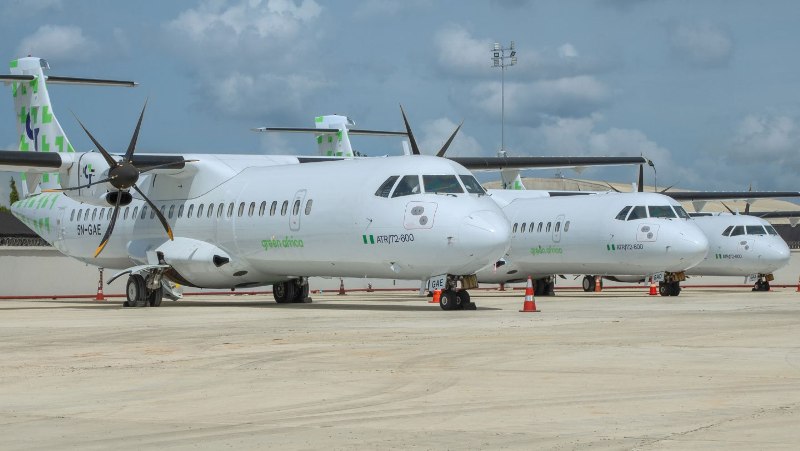Aviation Ministry Advocates Balance Between UAS Benefits, Risks To Aviation Infrastructure, Security

The Permanent Secretary, Ministry of Aviation & Aerospace Development, Dr. Emmanuel Meribole says there is need to find a balance between benefits of Unmanned Aircraft Systems (UAS) across various industries and incidental risks to aviation infrastructure and national security.
Delivering a keynote address yesterday at the 14th International Drone Technology Conference & Expo held at NIGAV Expo Centre, Lagos, Meribole said: “As unmanned aircraft systems (UAS), or drones, become increasingly prevalent globally, concerns regarding their misuse and security risks have equally increased. While the Ministry desires the advancement associated with the use of drones, focus must at all times remain on protecting civil aviation and countering their exploitation by non-State armed groups and terrorists. We must find a balance between the significant benefits UAS offers across various industries and incidental risks to aviation infrastructure and national security. Unauthorized UAS operations near airports and deliberate disruptions to civil aviation operations underscore the need for robust regulatory frameworks and effective countermeasures. The Office of the National Security Adviser (ONSA) collaborates with the NCAA to address the use of UAS by non-State actors for reconnaissance that pose complex security challenges. We must remember that as Nigerians, we are all stakeholders and must continue to individually and collectively contribute to national security. DRONTECX should also be used as a positive forum to promote awareness, cooperation, and innovation among stakeholders so that the nation can fully realize the benefits of UAS technology while safeguarding against potential risks, ensuring a safer and more secure future for all.”
He said “Nigeria has been proactive in embracing this innovation, hosting the first ICAO Remotely Piloted Aircraft Systems Symposium in Africa in 2017 and fostering ongoing dialogue and advocacy through platforms like DRONETECX.
This conference serves as a vital platform for government and industry stakeholders to explore ways of leveraging the UAS sector for national development. I applaud this effort and pleased to say that the Federal Ministry of Aviation and Aerospace Development under the leadership of the Minister, Mr. Festus Keyamo fully supports this drive and will ensure that discussions and ultimately, outcomes from this event strategically positions Nigeria and Africa in the RPAS industry.
Globally, the RPAS sector is evolving rapidly, playing essential roles in agriculture, health, construction, logistics, and public safety, with projections indicating a USD 260 billion market by 2030. African nations like Rwanda, Uganda, and Ghana are actively participating in this global race for leadership in RPAS technology. Recent regulatory developments, including amendments to ICAO annexes and the approval of new procedures, lay the foundation for an international regulatory framework for RPAS operations. Nigeria is actively engaging in this process while prioritizing safety and security considerations.
Unlike traditional aviation, RPAS involves diverse stakeholders beyond aviators such as service providers, surveyors, geologists, engineers and so on, introducing unique safety and security challenges. The Nigeria Civil Aviation Authority (NCAA) is tasked with providing robust oversight to ensure safe and secure RPAS operations, supported by other aviation agencies and others alongside the supervision of the Federal Ministry. Efforts to regulate RPAS operations in Nigeria are undeniable, such as the release of Part 21 of the Nigeria Civil Aviation Regulations being the regulatory framework, sets out requirements for certification, registration, operations, and surveillance of RPAS.
Additionally, we have encouraged the creation of a dedicated RPAS unit within NCAA and the integration of RPAS operations into national civil aviation policy, demonstrating government’s commitment to responsible use of RPAS. The Ministry is open to more interactions with the public and welcomes suggestions to help advance the usefulness of this technology. We call on our research centres to develop solutions for applications and production capabilities to make Nigeria a leading player in this industry and not a dumping ground. Collaboration between government, industry, and research institutions is essential for maximizing the benefits of RPAS technology while addressing potential risks. The Nigeria Airspace Management Agency (NAMA) is essential in providing UAS Traffic Management (UTM) and manage the UTM system to provide real-time information regarding airspace constraints and the intentions of other aircraft, when available, to UAS operators and remote pilots directly. The Ministry will oversee and ensure that both NCAA and NAMA deliver on their respective statutory responsibilities.”






